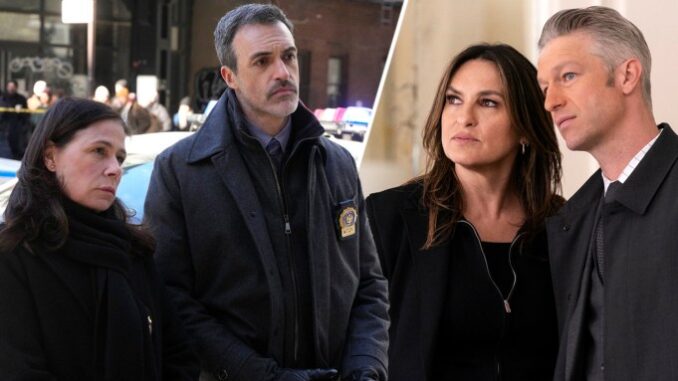
The hum begins anew. Not the distant, mournful wail of a squad car, nor the chilling silence that follows a dark revelation, but the low, steady thrum of generators, the murmur of crew members, the crisp crackle of walkie-talkies. The familiar rhythm of creation has recommenced, a symphony of logistics and creative grit. "Law & Order: Special Victims Unit Season 27 Filming Now Underway" – the announcement lands with the quiet weight of a cultural epoch. It’s more than just a press release; it’s a timestamp, a testament, and a mirror held unflinchingly to the enduring, often painful, human condition.
To speak of "Season 27" is to conjure a staggering numerical landscape in the fleeting world of television. Most shows flicker into existence, shine brightly for a handful of years, and then gracefully—or abruptly—fade. SVU, however, has not merely endured; it has become a constant, a narrative North Star in the ever-shifting firmament of pop culture. It means that children born when the show premiered are now nearing their thirties, perhaps watching with their own children. It means that the show has outlasted entire genres, technological revolutions, and multiple presidencies. This unprecedented longevity isn't just a statistical anomaly; it speaks to a profound connection, a deep-seated need SVU continues to fill within its audience.
At the heart of this enduring appeal is, of course, Olivia Benson. Her journey from ambitious young detective to compassionate, resolute Captain, now potentially Chief, has been a masterclass in character evolution. She is the familiar anchor in a sea of ever-new horrors. For 26 seasons, we have watched Mariska Hargitay embody not just a character, but an icon of resilience, empathy, and unflappable determination. The news of Season 27 filming means we will once again witness Benson's quiet strength, her weary but unwavering gaze, as she navigates the labyrinthine complexities of justice for the most vulnerable. Her presence offers a paradoxical comfort: we know the darkness awaits, but we also trust in her capacity to confront it, to seek light in the shadows.
Yet, SVU’s staying power extends beyond the magnetic pull of its lead. It lies in its relentless, often uncomfortable, commitment to reflecting the evolving tapestry of societal ills. Over the decades, it has tackled issues from domestic violence and sexual assault to human trafficking, cyber-crimes, and the #MeToo movement, often before mainstream media fully grappled with them. The show acts as a living, breathing social barometer, adapting its narratives to address contemporary anxieties and shifting legal landscapes. As cameras roll for Season 27, one can only anticipate what new, challenging facets of human depravity and resilience the writers will explore, sparking conversations and shedding light on corners of society too often ignored. The show forces us to look, to listen, and to confront the uncomfortable truths that linger in the periphery.
And finally, "filming now underway" brings a quiet awe for the sheer, grinding labor behind the spectacle. It’s a testament to the unseen architects of this enduring drama: the writers meticulously crafting narratives, the directors shaping scenes, the lighting and sound crews bringing atmosphere to life, the costume and makeup artists transforming actors, the tireless production assistants, and the entire logistical machine that makes a prime-time drama hum. It speaks to the dedication of a cast and crew who return year after year, committing their time and talent to a series that, while often grim in its subject matter, aims to provoke thought, offer catharsis, and ultimately, advocate for justice. It’s a collective act of storytelling, renewed with each sunrise on a New York set.
Season 27 of Law & Order: SVU is not just another number on a television series. It is a profound declaration of artistic and cultural tenacity. It signifies the ongoing relevance of a show that refuses to look away from humanity's darker impulses, while simultaneously offering a beacon of hope through its pursuit of justice. As the cameras whir and the actors deliver their lines, the familiar narrative cycle begins anew, drawing us back into a world that, despite its inherent bleakness, paradoxically offers a ritualistic solace and a constant reminder that in the face of unspeakable acts, there are those who will always fight for the victims. The hum continues, and so does the unflinching gaze.
